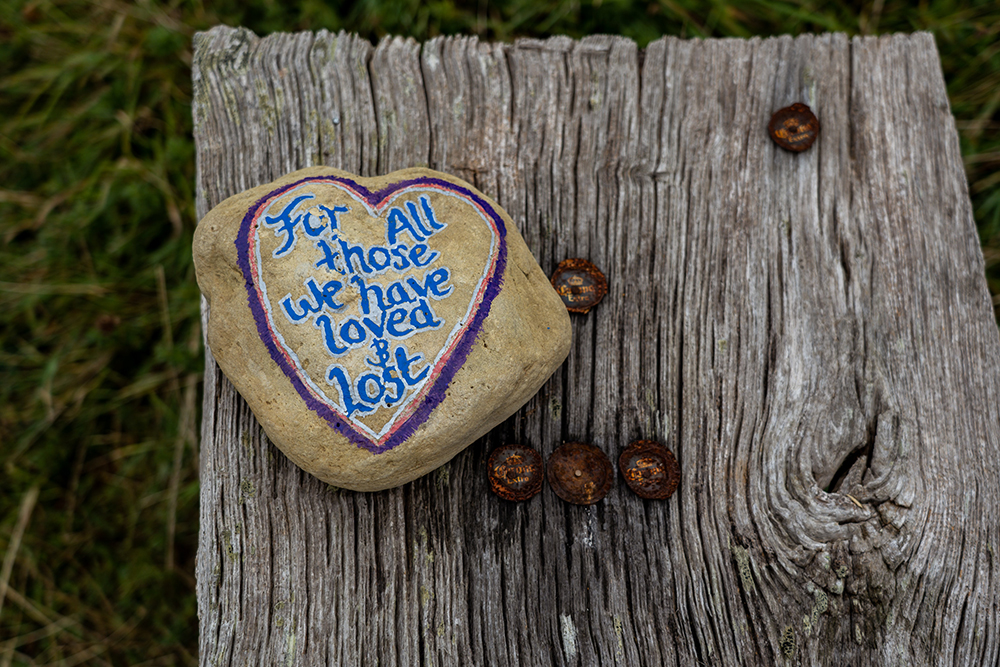
(Unsplash/Rainhard Wiesinger)
Not everyone eagerly anticipates the holidays; those who are grieving the loss of a loved one might dread the season. While they are already in pain and devastated, the rest of society celebrates — which only makes these weeks more difficult.
However, there are positive actions individuals or families can take to navigate this season and make the holidays meaningful, which I, as a counselor, outline in my book Grieving: A Spiritual Process for Catholics. The following suggestions offer a reassuring blend of spiritual support from Catholic wisdom and current best practice from the mental health field.
Plan ahead
Planning can provide a sense of control when so much seems out of control. First, consider what you would like to do, modify or not do, for the holidays. Then gather your family — in person, on a phone conference call or video meeting — to discuss and solicit input.
You all may find that suspending some family traditions is just what is needed. For instance, instead of Christmas cards with individual notes, write a letter, make copies and send them (or email a PDF) to those on your list, asking them to share a favorite memory of your loved one in return. Grief is mentally, physically, emotionally and spiritually exhausting, and changes like this can save time and preserve energy. You can always bring back beloved traditions, and you may even find that you keep some new ones you start this year.
Advertisement
Give yourself permission to say no
You have permission to accept or decline invitations to social events. You know yourself best. If you accept, go to the event by yourself. This allows you the comfort of leaving when you need to. You may let the host know this ahead of time.
You can also go with a "buddy," a friend who may make it easier to walk into a group, yet understands that when you ask to leave, they respect your request. If you do not feel up to accepting an invitation, it might be more gracious to say "No, not at this time." Or "No, I am not ready for that yet."
Honor your loved one
We acknowledge that our loved ones are physically absent, but their spiritual presence is always with us. The bonds of love shared while they were alive continue after their death, but in a transformed way. This is underscored in the Order of Christian Funerals, the beautiful book of rituals and prayers, as it emphasizes the church's "confident belief that death is not the end nor does it break the bonds forged in life."
Some families set a place at the holiday dinner table to honor their loved one, or place a photograph with a lit candle on a table or fireplace mantel. Other families may decide on a day during the season to do volunteer work in honor of their loved one's memory.

(Unsplash/Nick Fewings)
Engage in prayer and the Eucharist
Grieving the loss of a loved one can be an opportunity to deepen your relationship with God. In prayer you can ask for help, for strength and for comfort. Our Catholic tradition offers a richness of options: traditional and spontaneous prayers, silent centering prayer, Eucharistic adoration, walking a labyrinth, the Rosary, Novenas, the Divine Mercy Chaplet, Lectio Divina and Ignatian imaginative prayer. Seek out an Advent choral program or Taizé prayer service, both of which offer more mellow music than a joyous Christmas concert.
For the Lakota tribe of South Dakota, the word ceya not only means "to cry" but is also the root word for prayer when "the whole body pushes up sacred water that emerges in your tears." This healthier understanding of crying is quite different than how most of us react. So in those desolate moments alone, know that sobbing aloud and even wailing is sacred prayer, where there are no words.
Finally, being nourished by the real presence of Jesus in the Eucharist is a lifeline. Attend the early liturgy on Sunday, where there are fewer people and the music is more subdued. If you prefer companionship, ask a friend to accompany you. Sit in the back of church so that if you begin to cry, you can easily slip out for a while. You may find that daily Mass, with its smaller numbers and absence of music, feels more manageable for you.
We acknowledge that our loved ones are physically absent, but their spiritual presence is always with us.
Advocate for yourself
When you lose a loved one, people will say or do things they intend to be supportive, but you might find hurtful. "Aren't you over it yet?" is one classic example. Be prepared to gently educate others. Say "I know that you are trying to be supportive, but I don't find what you just said to be helpful. Everyone grieves differently, and there is no timeline or 'expiration date' for grief. And you don't 'get over it.' So here is how I would like you to support me …"
In the company of others, use your loved one's name and talk about him or her. In turn, encourage others to do so, especially sharing favorite memories. If you get teary, they may feel badly that they "upset you." Just reassure them that it is all right, it happens.
Connect with others
When a loved one's death is recent, grief is acute, raw and consuming. Often the inclination is to withdraw from others and the outside world, convinced that you are the only one who feels this bereft. You are not. Reach out to a trustworthy family member or friend for support. Look for someone who can set aside their need to "fix your grief" and cheer you up, someone who can just listen compassionately without any judgment.
If you do not have a support person, reach out to your parish where a priest, deacon, pastoral care or bereavement minister can be that listening presence. Grief support groups are also a safe place to share your story and heal. If you feel stuck, seek out a licensed therapist — a counselor or social worker. Your support persons can be the ones to hold space for you to grieve in healthy ways, and at the same time, hold hope until you are ready to reclaim it for yourself.





